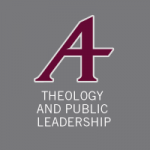Kenda Creasy Dean’s Almost Christian has gotten a lot of attention in the past year and I am glad. I was beginning to think that we (as a Church) had glossed over the findings of the National Study of Youth and Religion (NSYR) too quickly. Kenda offers us an antidote to the Moralistic Therapeutic Deism of the NSYR by looking into the lives of highly devoted young people. These youth register as highly devoted youth because they …
“seem adept at using at least four cultural tools in ways that mark them as members of their traditions: (1) they confess their tradition’s creed, or God-story; (2) they belong to a community that enacts the God-story; (3) they feel called by this story to contribute to a larger purpose; and (4) they have hope for the future promised by this story.” (pg. 49)
It is important to notice that these students aren’t just confessing a tradition, but they are able to operationalize the story, or theology, of their tradition. Dean says they are “adept at using” these tools.
By claiming that youth ministry is theological, I do not simply mean that its practices are grounded in “sound theological principles”. I mean that youth ministry is actually an inter-generational community of people seeking to be theologians, to find practical ways of speaking about and living out a particular belief in God. Ways that help them better understand their call and ways that give them a deeper sense of hope.
Walter Brueggemann challenges us to see ministry as the task of re-scripting one another by hearing in our scriptures an alternative script to the dominant script controlling our lives. The dominant script is one of technological, therapeutic, consumer militarism that supposedly promises to make us safer and happier (Yes, surprisingly similar to the NSYR’s moralistic therapeutic deism). The problem is that it has not succeeded and has, in fact, made us less happy and less safe. I can’t help but wonder if some of the painful and destructive things we see our young people engage in are simply reactions to an unwillingness or inability to fully give oneself to the dominant script. Ministry, then, is a theological deconstruction of this lie of the dominant script. It is also the theological construction of an alternative script. A process that happens as we engage and interpret God’s word for us today.
This is not an argument for a liberal or conservative interpretation or ideology. It is a call for communities of faith to engage the scripture with their youth (and their youth with the scripture) in a way that helps the community challenge the aspects of our lives that threaten life and well-being. This is theological in that we, as Christians, believe that God is involved in and desires life and well-being, therefore our talk about those things is also God-talk – or theology.
Our youth do not need to be theologians in the traditional sense. They do not necessarily need to know how Luther differs from Aquinas or Barth from Bonhoeffer. But they do need a theological framework for understanding who God is, who we are as humans and how Christ mediates the space in-between. Everyday in my work I witness college students long for and seek something that will help them understand life, death and the possibility of God.
I would love to see and hear youth ministers of all denominations begin to argue about what that theological framework might look like and live like. What are the non-negotiables of this framework and how will these non-negotiables help our youth see life differently?
This post is the fifth post (of 9) in this “anti-model” series.





